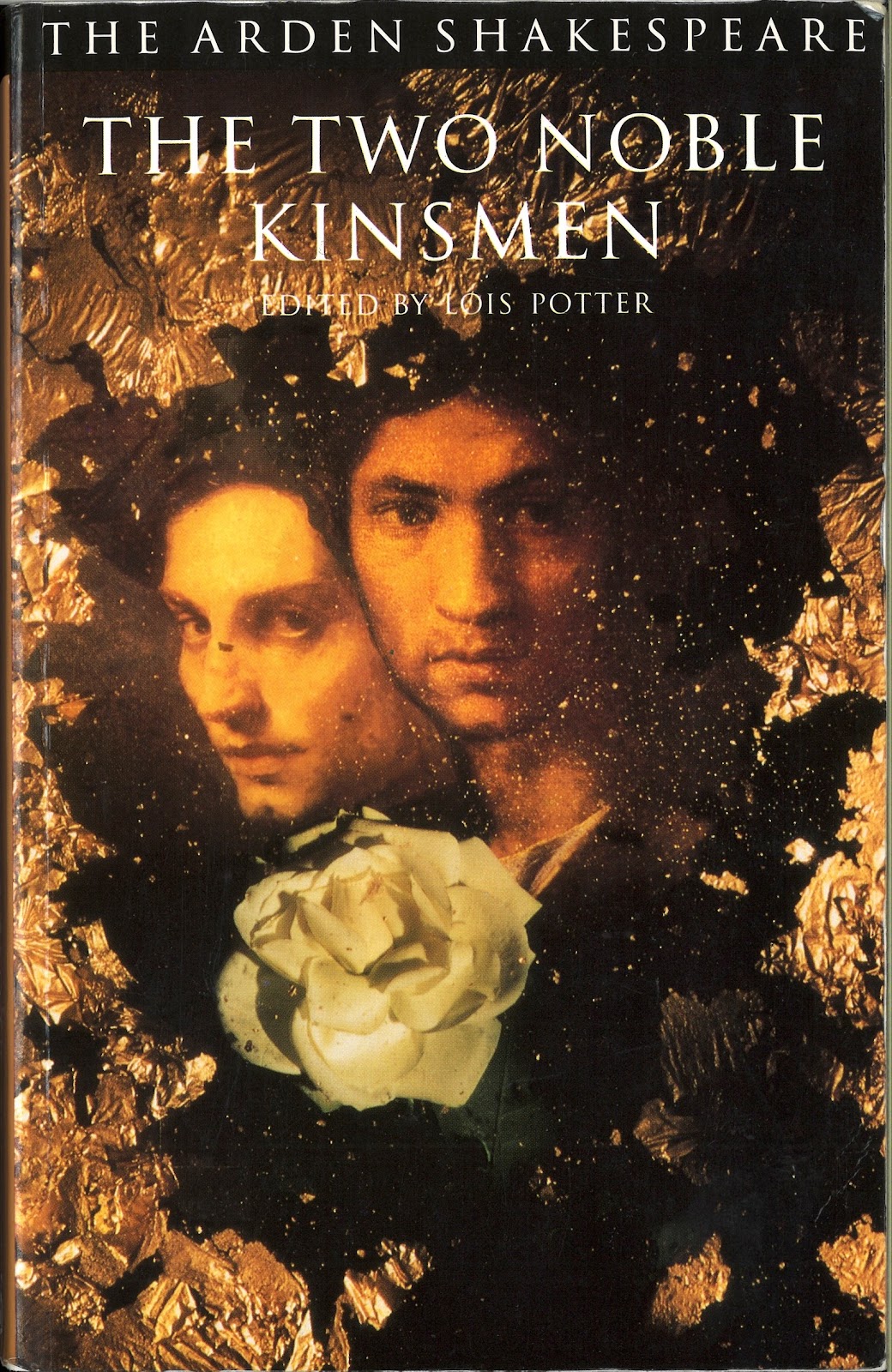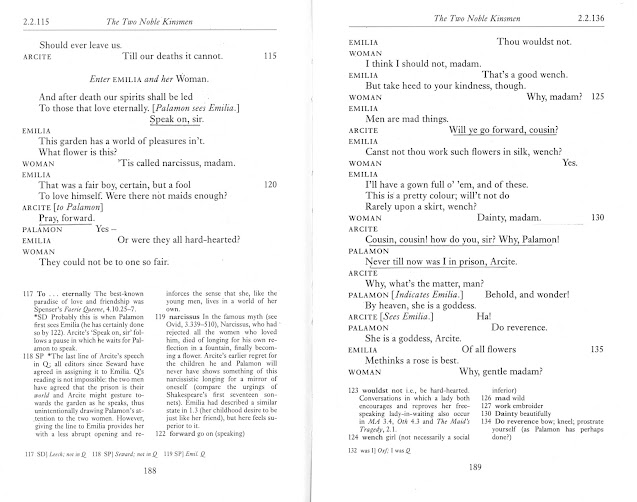Every ten years or so, I re-read The Two Noble Kinsmen. I first read it toward the end of my graduate work. I had a vague idea of writing my dissertation on madness in female characters in Shakespeare, and the play has one notable example.
It's also likely to be Shakespeare's last play, though not his last individually-authored play.
It's also a good play with a lot of fun material, and it's also one of the few places where Chaucer serves as a major source: The plot of The Knight's Tale is the foundation of The Two Noble Kinsmen.
The setting is a war between Athens (led by Theseus—technically, he's the same Theseus from A Midsummer Night's Dream) and Thebes. During the war, Palamon and Arcite, two close friends fighting somewhat unwillingly but still honorably for Thebes, are captured and imprisoned.
The scene between the two of them is one of my favorites in the play. They pledge eternal loyalty to each other and are happy in prison because they're together in prison. When Palamon asks, "Is there record of any two that loved / Better than we do, Arcite?" (II.ii.12–13), Arcite replies "Sure there cannot" (II.ii.13).
And then . . . enter Emilia.
Palamon sees her first and falls immediately in love with her. Arcite sees her next and falls immediately in love with her. Then they get to argue comically about whose love should have the priority. Here's that scene:
It's all great, compelling material that sorts itself out through the rest of the play.
As that develops, we learn that the Jailer's Daughter (he's unnamed, and so is she) has fallen in love with Palamon—but when he fails to return her love, she goes mad. Act IV, scene iii shows us her madness and the plan for alleviating it:
There's more good, rich material there—including a rare (for Shakespeare) reference to barley-break (about which you can learn more here).
It's not the best play in the canon, but it's still quite interesting and quite readable. The scenes I like best are usually attributed to Fletcher—which makes sense if Fletcher is the up-and-coming new dramatist and Shakespeare is the author about to retire.
I recommend reading it—though once every ten years is sufficient. But let me know if you learn of a staging of the play! I'd love to see it in production.
Click below to purchase the book from amazon.com
(and to support Bardfilm as you do so).
(and to support Bardfilm as you do so).


















No comments:
Post a Comment